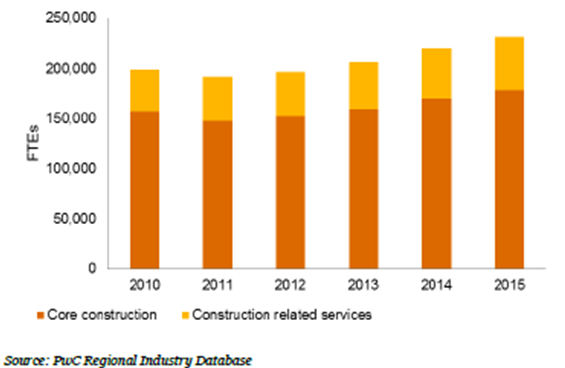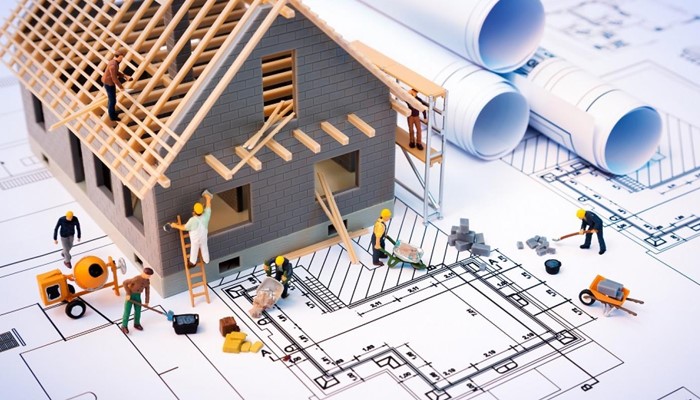Welcome to the New Zealand Certificate in Construction Trades Supervision (Level 5) Residential Building Strand.
The aim of this programme is to provide you with the applied skills, knowledge and capability needed to supervise teams and manage work schedules on a residential construction site.
This programme is designed to meet the needs of residential construction workers at all stage of their careers, including relatively new tradespeople being advanced into supervisory roles or who are looking to train in preparation for future opportunities, and experienced builders and tradespeople looking to advance their careers into supervision and management.
In this module of “knowledge”, you will learn to have a clear understanding of the compliance activities required for a “residential” construction work programme.
This online self-paced learning module connects with your practical work placement requirements set out in module B “Application”. These knowledge-based components and principles will be demonstrated in your worksite compliance requirements and process.
The construction sector plays a large role in New Zealand’s economy, it contributes strongly to employment, businesses, and the nations bank balance (GDP). Construction is the fifth-largest sector by employment, comprising around 178,100 FTEs, with another 53,600 FTEs in construction-related services.
Together, this accounts for 10% of total employment across the whole economy sector.
As of 2015 Construction and construction-related services contributed 8% of New Zealand’s total GDP and has an even greater impact when joined together with other sectors.
The Construction sector delivers almost as much of New Zealand’s GDP as the whole of the Waikato region, and this contribution is growing, so you have made a good decision on your career path!
Over the last three years, core construction has seen a big growth, overtaking the wholesale trade to become one of the biggest contributing financial sector.
Between 2012-2015 construction employment contributed one out of every five new jobs in New Zealand. In contrast, the agriculture, forestry, and fishing sector, for example, contributed a much smaller 330 new jobs over the same period.
New Zealand’s economy has a large return when the construction industry is profitable. Construction supports other struggling sectors with recurring low productivity. Since 2012, in general labour productivity has increased.
In the long-term, gains in construction productivity would produce even larger benefits for NZ.
Broadly speaking, improving performance of the sector provides a range of extra benefits which will be shared by the industry and consumers.
For the industry, this means even better profit margins, better skills development and earning opportunities for its workers.
For consumers, this means that high quality construction will cost less, involve fewer project delays, and have a wider variety of options to satisfy consumer demand.

The construction industry could help grow its successful productivity through additional investment in skills, training, innovation, promoting better contracting practices and adding options for improved quality assurance processes.

There is also an opportunity to incentivize training and skills development for new and existing workers in the industry, as well as incentivizing more high skill workers, with cross-functional skills into the industry. Exciting times are ahead in New Zealand!
There are many different ways in which the construction industry contributes to our society. Not only does it provide us with well-designed buildings, but it also creates and maintains the infrastructure (the basic structures needed for the operation of a society, including roads, buildings, and power supply) required by todays modern society.
This construction can include:
- Transport networks – such as road, rail, airports, and motorways
- Drainage – the provision of waste connections to houses, offices and other commercial buildings like shops
- Provision of services – the supply of water, gas, electricity and communications to our houses and towns
- Flood defenses – provision of defenses to protect our buildings from flooding by rivers and rising sea levels
Construction also covers many different types of work, from taking on projects for private individuals through to commercial property development.
There are many different types of construction projects, including:
- Industrial – factories, industrial workshops, industrial estates, and industrial units
- Residential – private houses, apartments, housing association properties and social housing
- Commercial – retail units, shops, offices and business parks
- Retail – shop refurbishment, public house refurbishment, shopping parks and retail centres
- Health – hospitals, community care centres, retirement homes, clinics, and medical centre developments
- Education – construction of new schools, further education facilities, universities, and training centres
- Leisure and recreation – cinemas, sports facilities, all-weather facilities, and football stadiums
Later on in your studies we go deeper into the recognised building classifications.
Look at the following New Zealand based construction website and look at all the different types of construction projects that are currently planned or taking place in the near future.
https://www.consultanz.com.au/list-major-infrastructure-projects-new-zealand-2021/

Auckland is experiencing the biggest construction and infrastructure boom in our nation’s history!Ref:Buildakl.co.nz
Operating in Construction
The construction industry is known for being one of the most dangerous fields to work in.
The Construction industry also results in many non-fatal injuries that cost companies millions of dollars per year.
In 2019 eleven people died while working in the construction sector during this particular year, the most of any full calendar year since 2009, when 19 people died.
Testing adding a link
test

